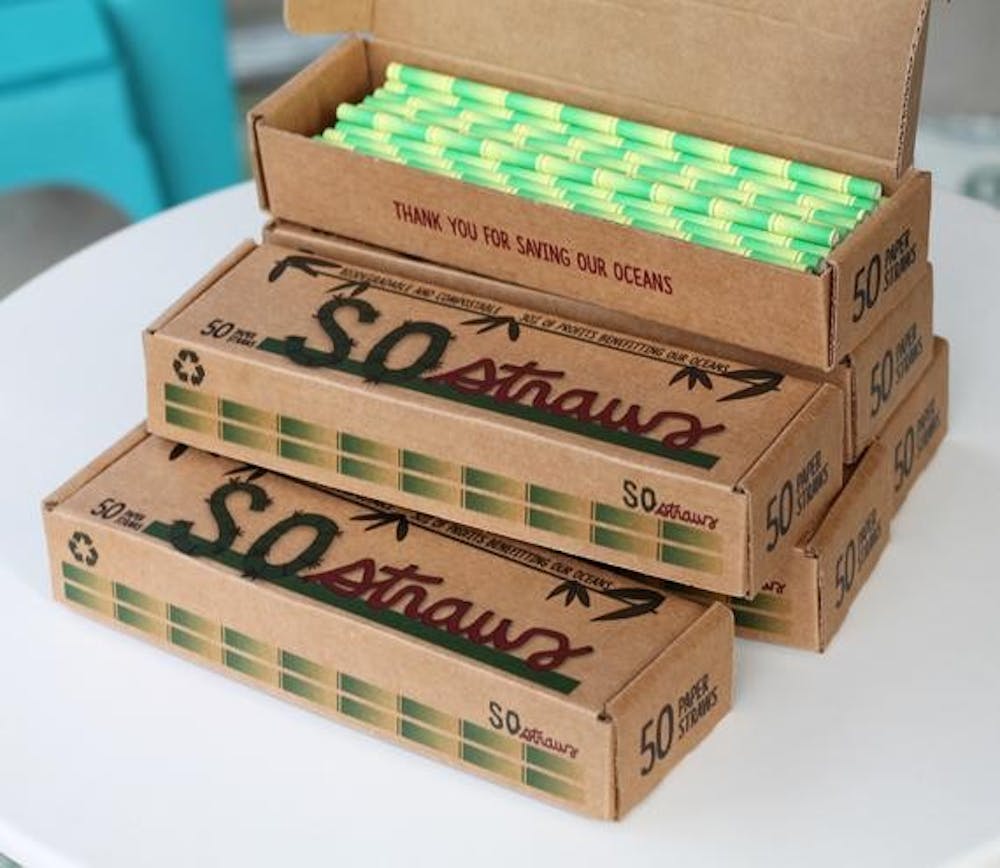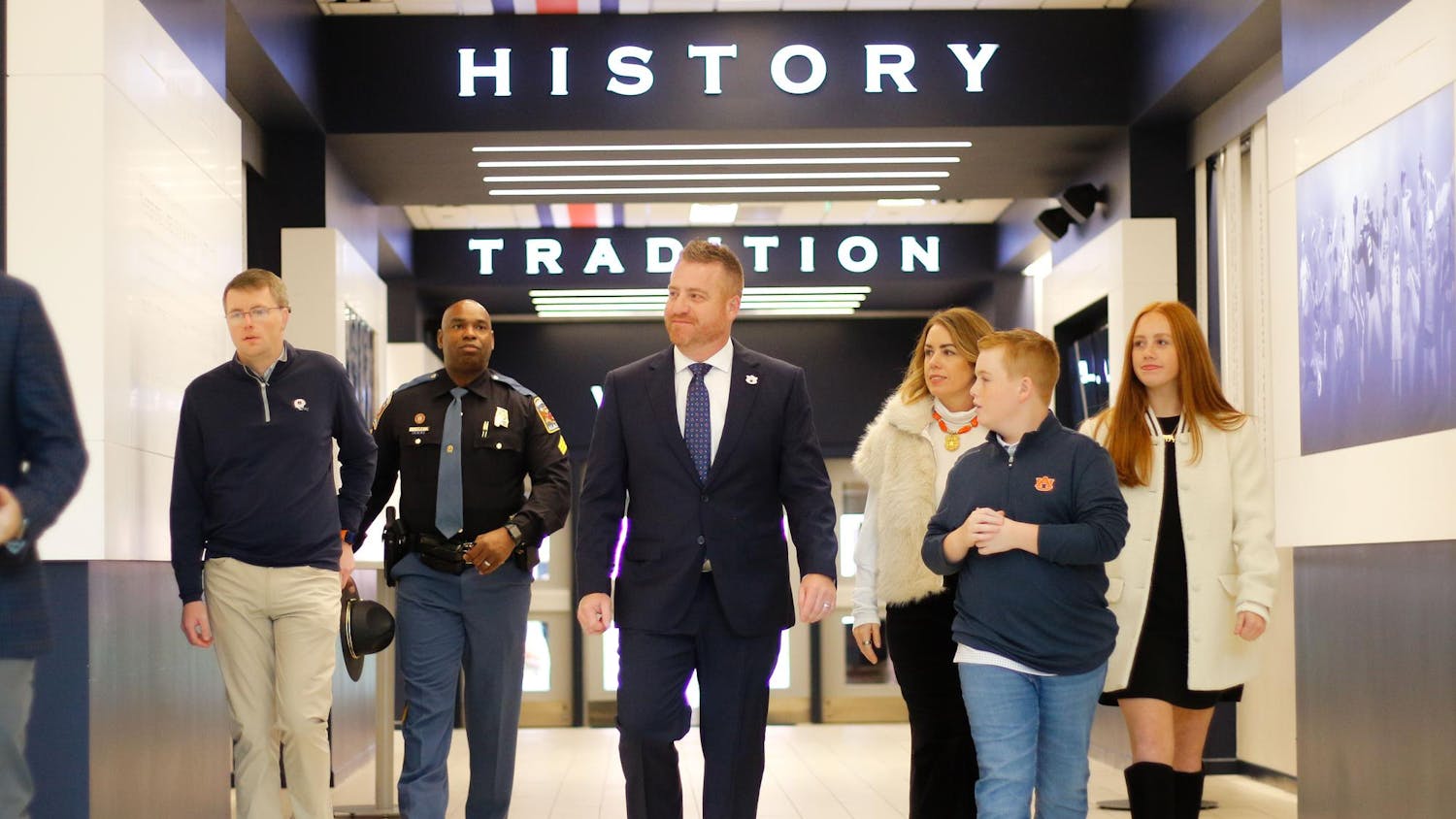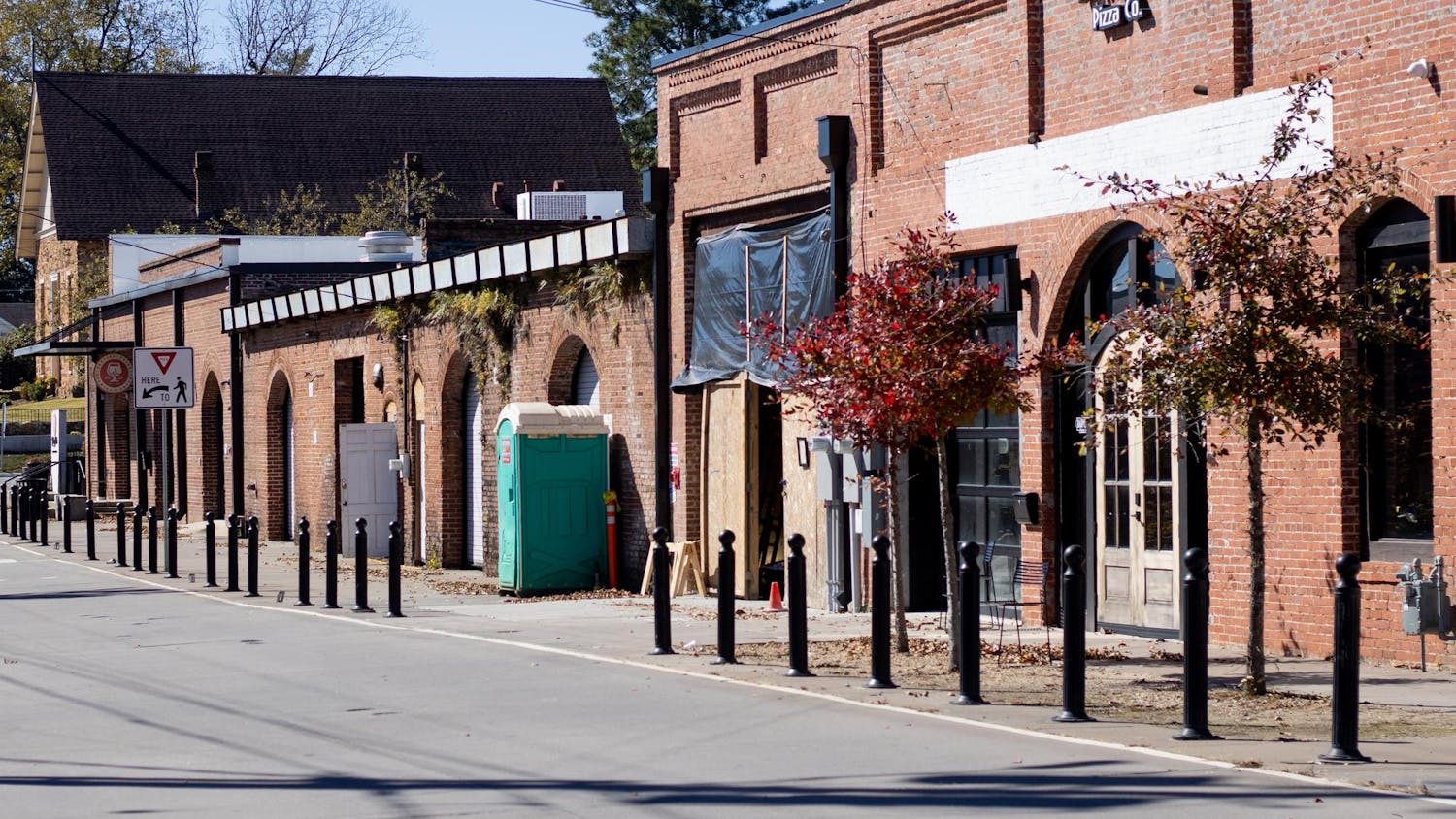Porter Kennedy, senior in finance, said it all started with a simple video going viral on Facebook.
“There’s a tortoise and he’s pulling plastic straws out of his nose, but it was that video that made this such a hot topic,” Kennedy said. “That one video.”
Kennedy didn’t grow up at the beach. He doesn’t spend his breaks surfing nor does he have a pet tortoise, but he did have one thing: a business idea.
That idea is what has become SOstraws, the bamboo-themed, paper alternative to the plastic straw crisis echoing across the nation, begun by Kennedy and his co-founder Kressie Kornis, a senior English literature major who also founded the Auburn for Bee’s club.
The idea came to Kennedy while he sat at a rooftop bar overlooking the White House last summer during an internship.
Kennedy couldn’t disregard the fact he and everyone around him sipped drinks through paper straws.
“I researched everything I could about it,” Kennedy said. “It’s crazy. 500 million plastic straws are used every day in the United States.”
That’s 1.6 straws per person daily, 182.5 billion straws as a nation per year. In other words, it’s filling 127 40-foot school buses with plastic straws to be used, and then thrown away. And then doing it again 364 more times.
“And that’s the problem,” Kennedy said. “Straws are too small to be sorted out [in recycling centers], and that’s why they end up in the oceans.”
Another issue lies in a straw’s lifespan. While a straw may be used only once or twice, its lifespan exceeds 200 years.
According to Kennedy, there will be more plastic in the ocean than fish by 2050. But while the straw movement might seem like just a younger generation’s craze to seem cool and sustainable, Kennedy argues it’s much more than that.
“It’s why a lot of legislation is being passed here, the UK and California,” Kennedy said. “Those aren’t 20-year-olds passing those bills, those are 45-50-year-olds, so it’s become a huge issue.”
Across the United States, cities like Chicago, San Francisco, St. Louis and Portland, Oregon, are banning the use of plastic straws.
The United Kingdom and Vancouver, British Columbia, have banned them all together while Taiwan intends on entirely banning single-use plastic items.
Starbucks has announced its straw suspension by 2020, and dining halls and on-campus restaurants at Auburn University are doing their part to raise awareness and halt the consumption of plastic straws as well.
Still, Kennedy wanted to add his own voice to this movement, or in this case, to the straws.
For the last six months, Kennedy and Kornis, have worked together to create the plastic-less solution, SOstraws.
“This is the future,” Kennedy said. “There’s a massive market for this stuff, especially as everyone is switching, but this is something that can help the oceans. It’s an opportunity.”
The paper straws come in thin cardboard boxes of fifty for $6.99 with the logo SOstraws written on the front in green and red bamboo-font.
Customers can purchase SOstraws directly through social media platforms or via Amazon, but it’s not only about getting people to use paper. Thirty percent of all profits goes to benefiting the oceans directly through the charities Oceana, Coral Reef Alliance and the Ocean Conservancy.
“I think getting people to switch and halt the usage of plastic is great, but one of the main things to make a difference is that 30 percent donated,” Kennedy said.
The boxes and their straws are entirely biodegradable and compostable. Kennedy said the company uses no plastic in the boxes, wrapping or the straws in order to uphold their mission, which is quite simple: Oceans are dying. Sea creatures are dying. One of the largest culprits is plastic, so let’s get rid of the plastic.
It seems easy enough, just get rid of whatever is sticking out of the tortoise’s nose, but plastic straws have been a staple in restaurants, fast-food joints and mothers’ pantries for years. They’re thrown on the table on top of a pile of napkins and silverware at a Mexican restaurant. They’re sitting in the ice-cold glasses of lemonade on a southern porch during a hot autumn afternoon, lying between the lips of friends sipping chocolate malts from a 24-hour diner after a football game. Even serving as the ultimate bubble blower in your little cousin’s chocolate milk.
There’s just something about a straw.
Which is why Kennedy felt so compelled to give people an alternative that wouldn’t force them to cold-turkey cut straws from their lives.
But paper straws can be uncertain. There’s the issue of soggy paper, an understood truth from middle school. Paper beats rock but water beats paper, and everyone can remember a time of receiving a paper straw at a restaurant, wondering about the odd-feeling stick’s ability to do its job and then coming to the harrowing realization that by the third sip the paper had become a mushy culmination of water and spit, impossible to enjoy with the rest of the meal.
But according to Kennedy, these straws are different. Like anyone else, Kennedy prioritizes a good straw. Durable, thick, not mushy.
“These are the real deal,” Kennedy said. “You could leave them in there for hours, and they would still be sturdy and drinkable.”
It might not be fun to admit, but Auburn doesn’t have an ocean. The closest ocean is nearly four hours away. Yet just because something might not be immediately noticeable from the heights of the Haley Center Eagle’s Nest doesn’t mean it doesn’t exist.
“If this thing gets big, it would have started at Auburn,” Kennedy said. “We’re known for engineering, maybe a little bit of football, but I think this is one thing that if it really catches on, Auburn could be in the forefront of that environmental impact.”
The business is only a baby, just officially a month old and celebrating its first New Year’s days ago, on the rocks with a paper straw, of course.
The co-founders still haven’t come to a consensus on the name: Save the Oceans Straws or Save Our Straws. Yet even in its earliest days, SOstraws has a vigor it doesn’t intend on losing any time soon. The name will come, and as the business grows, Kennedy said he hopes to offer even more alternatives to plastic.
“I think every action counts, even if it’s a little, so hopefully this will do just that,” Kennedy said.
Do you like this story? The Plainsman doesn't accept money from tuition or student fees, and we don't charge a subscription fee. But you can donate to support The Plainsman.





